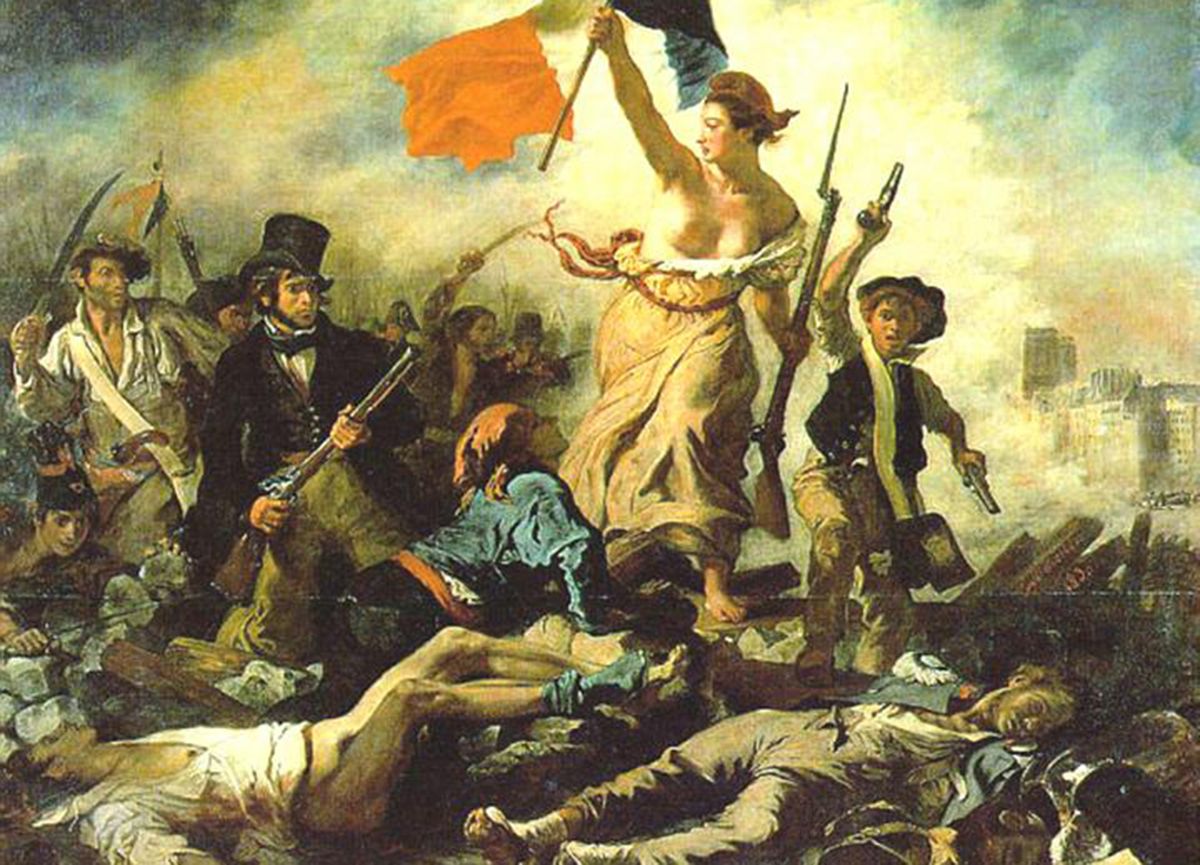
Overview
The Evolution of Modern Europe is a course designed to introduce you to important aspects of European social, cultural, political, economic and intellectual history during the past several centuries. The twelve lessons are meant to guide you chronologically through this span of history, providing you with both a narrative and an analytical exploration of modern Europe.
Threading its way through the lessons will be the overarching theme of "modernness." This may seem obvious given the title of the course, but we wonder how many of you paused to reflect on what it means to refer to Europe as modern. Certainly those of us living in "Western civilization" have been profoundly shaped by what's happened in Europe since its tremendous devastation at the hands of the Black Death some six centuries ago.
Three broad aims apply to a course like this. First, you should gain some general knowledge of the period, along with some appreciation of the complex forces that have moulded modern Europe. The assigned readings will introduce you to varying and at times diverging interpretations of specific historical developments and questions. You don't have to treat these readings as final authorities. Think about them, question them, constructively criticize them - you're free to agree or disagree with the perspectives of the authors, and with the unifying theme of the course for that matter. As in any survey course, all that can be provided here is a place to begin thinking about the subject matter. But it's hoped that by the time you complete the course, you'll have gained a sense of some of the major themes, theoretical questions, and conceptual debates that have occupied historians of Europe.
This raises the second aim of the course, which is to introduce you to a number of different kinds of historical problems. In your assignments and exam you'll have an opportunity to develop and demonstrate your skills as a historian, by identifying patterns which tie together and give meaning to masses of facts and by creating arguments about those patterns of meaning.
Finally, through your assignments and the feedback you receive on them, you should learn about historical method, the presentation of evidence, and the writing of historical papers. In short, it's hoped that this course will sharpen your ability to analyze past events, and will enable you to reconstruct the past imaginatively and critically. Good luck in your endeavours. I hope you find it a stimulating and worthwhile learning experience.
Learning Outcomes
After completing HIST 125, students should be able to:
- Identify and state the historical significance of major trends and milestones in 18–21st century European history.
- Analyze issues and problems in European history in their historical context.
- Analyze and discuss historical problems in European history.
- Apply historical research methods to analyze historical sources and apply effective essay-writing to argue that analysis.
- Analyze primary and secondary sources on European history.
- The Origins of Modern Europe
- Europe under the Old Regime
- The Age of Enlightenment
- The French Revolution
- Napoleon and the Aftermath of the Revolution - Conservatism, Romanticism, Liberalism and Nationalism
- The Industrial Revolution
- The Rise of the Nation State, New Imperialism and Social Darwinism
- World War I - The First Modern War?
- The Russian Revolution
- The Rise of Totalitarianism in Interwar Europe
- World War II and the Cold War Division of Europe
- The Collapse of Communism and the Challenges of European Integration

